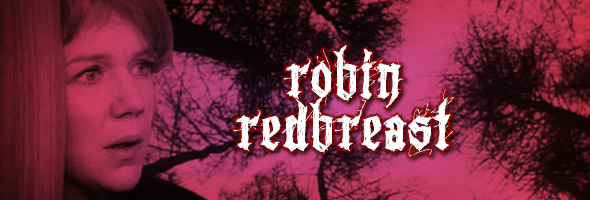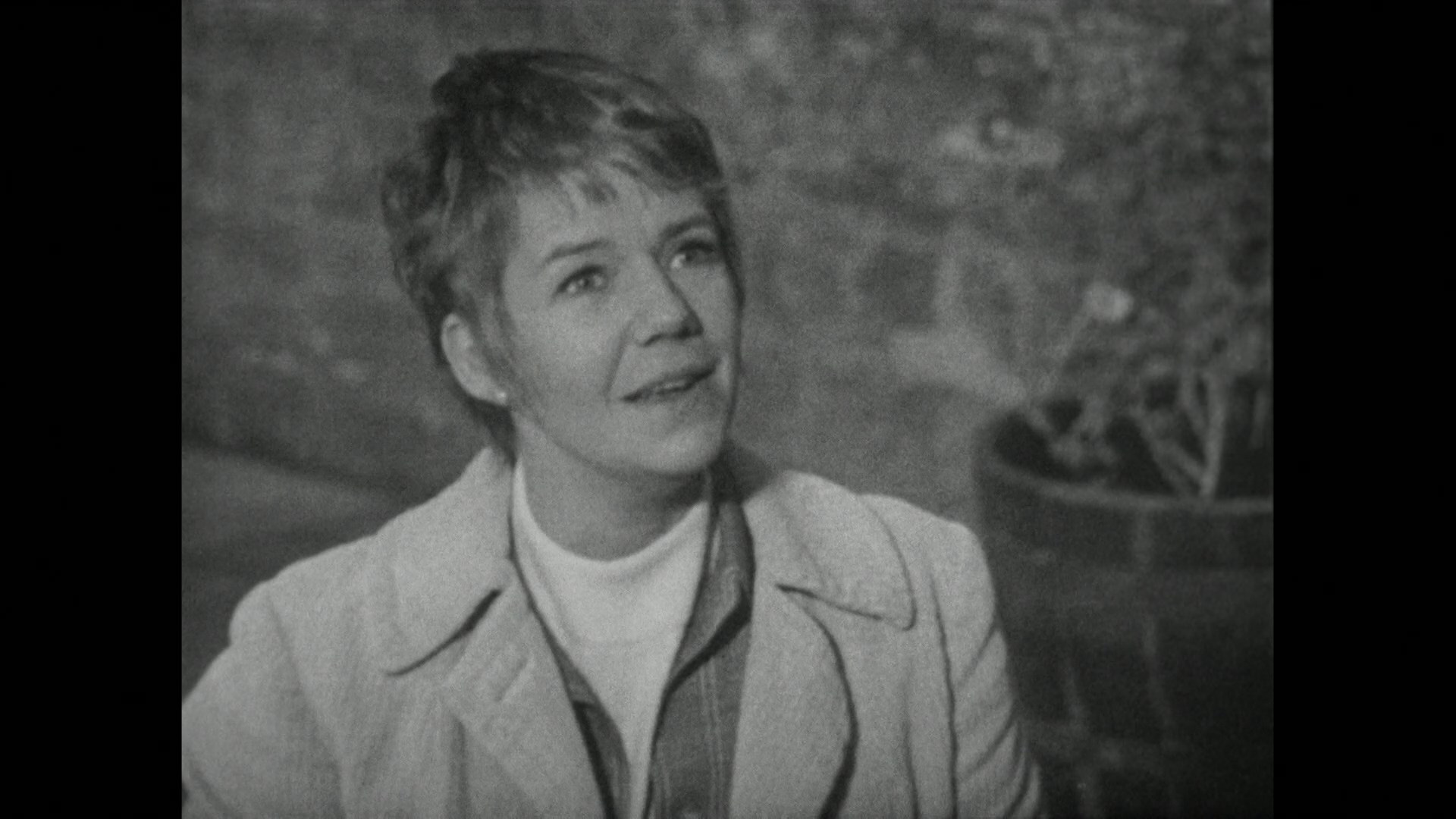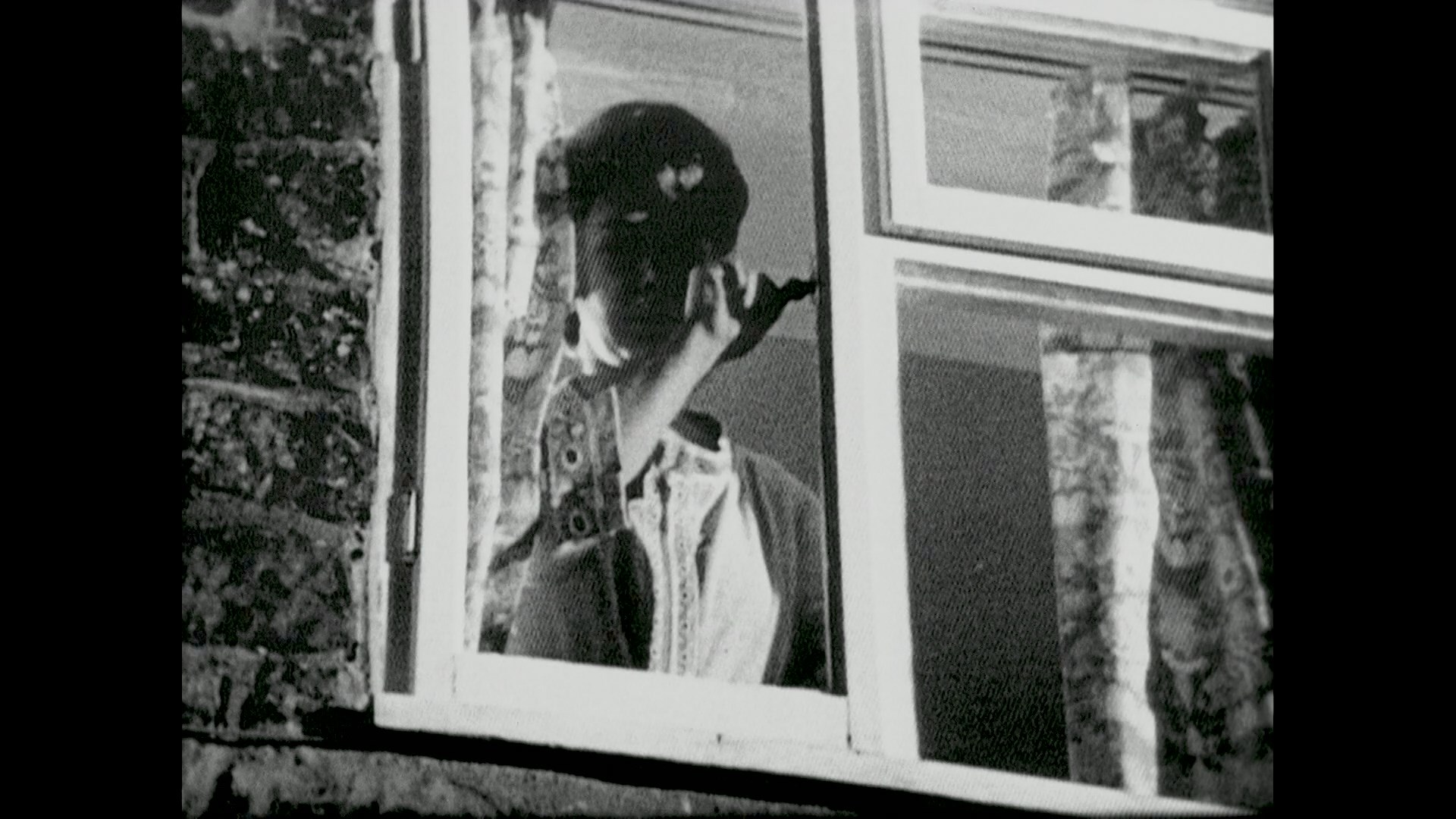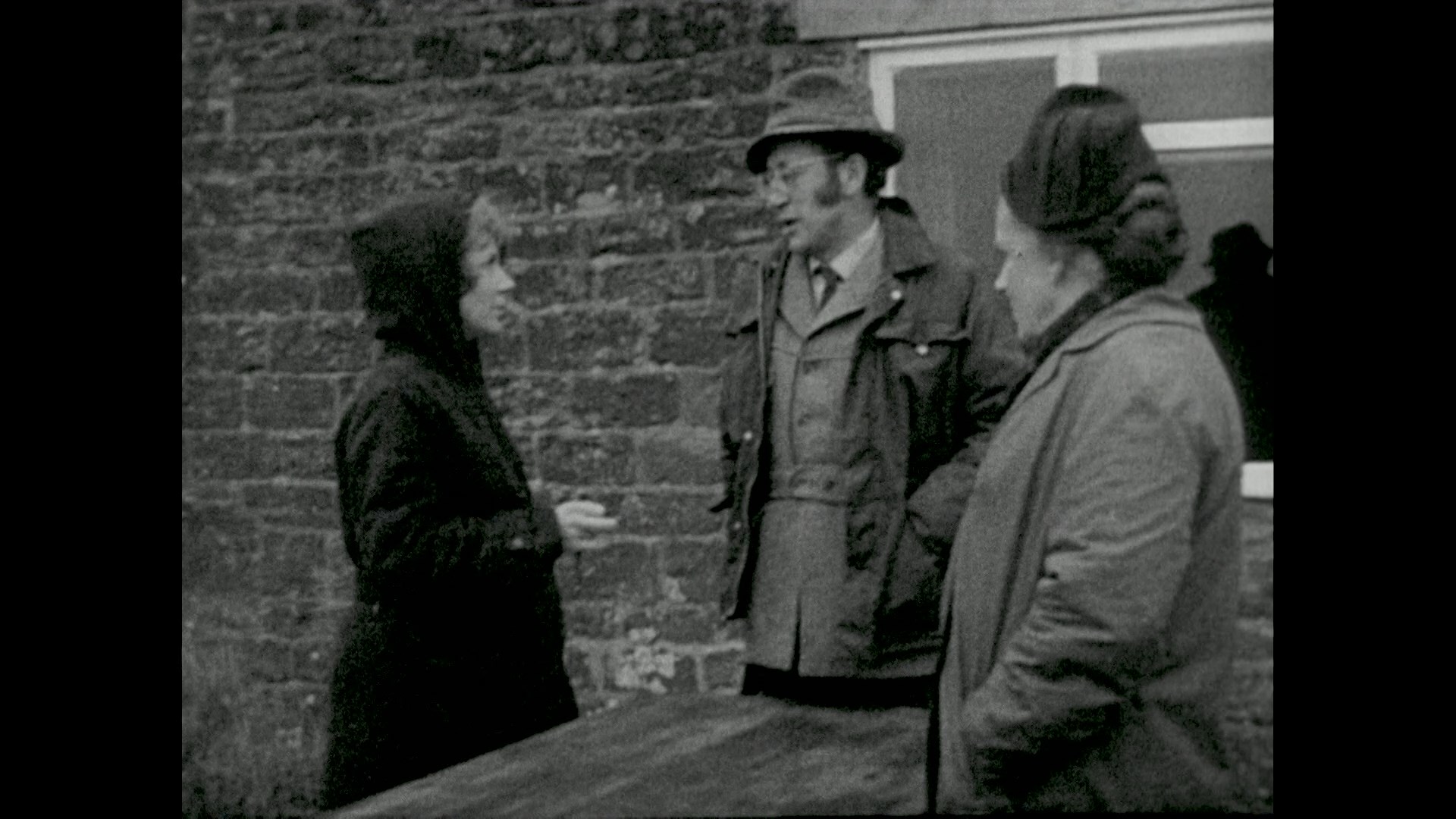
B&W, 1970, 77m.
Directed by James MacTaggart
Starring Anna Cropper, Amanda Walker, Andy Bradford, Julian Holloway, Freda Bamford, Bernard Hepton
BFI (DVD) (UK R2 PAL)
 Now here's one for the horror history books that almost no one
Now here's one for the horror history books that almost no one  outside the U.K. could have ever stumbled across. Originally broadcast just before Christmas in 1970 as part of the series Play for Today (and rebroadcast due a signal drop in some areas), this chilly little number from the BBC archives is a folk-laced tale of paganism and terror in the countryside made three years before The Wicker Man, with which it shares a number of striking similarities.
outside the U.K. could have ever stumbled across. Originally broadcast just before Christmas in 1970 as part of the series Play for Today (and rebroadcast due a signal drop in some areas), this chilly little number from the BBC archives is a folk-laced tale of paganism and terror in the countryside made three years before The Wicker Man, with which it shares a number of striking similarities.
Still getting over the collapse of an eight-year unwed relationship, TV script editor Norah Palmer (Cropper) decides to get her head together out in the country. She isn't all that interested in marrying or having kids at the age of 35, and during her idyll at a cottage with only the nocturnal invasions of field mice to keep her company, she starts to feel some physical attraction to a local games keeper, Rob (Bradford), whom she spies in the woods practicing martial arts in a speedo. Rob attempts to bed her during one visit at night and finally succeeds when she's frightened by an intrusion of birds through her chimney. However, she has no intention of continuing a relationship even when she winds up pregnant (thanks to the mysterious disappearance of her diaphragm). After a brief return to the city, she comes back to the cottage but, suddenly without a car, finds herself trapped in the village with no means of escape.
If the comparison above (and on the disc packaging) to The Wicker Man leads you to think you know exactly where this is heading, well, you're going to be a bit surprised by the final outcome. There's a third act monologue that's a dead ringer for Christopher Lee's in that more famous film, but the story itself swerves in a highly disturbing direction that could fuel a dozen gender studies term papers. The horrific screws don't actually get tightened until the last few minutes, but it's an impressive feat of the macabre complete with a truly unnerving gag involving Norah's chimney that would've been ripped off by a lot of filmmakers had this been easier to see. The dialogue by writer John Bowen (who also penned The Ice House and The Treasure of Abbot Thomas) goes a long way towards selling a concept that might have proven extremely offensive to some at the time, including a surprising discussion of abortion by Cropper that feels incredibly candid even by feature film standards. In fact, her entire character is an unusual one for a horror story; her insistence at keeping sex and love separate  and her refusal to bow to social pressures also make her more than a little unsympathetic (and even downright cruel at times), but this pays off in
and her refusal to bow to social pressures also make her more than a little unsympathetic (and even downright cruel at times), but this pays off in  spades at the end when the story manages to upend the entire concept of religious and social morality for the audience.
spades at the end when the story manages to upend the entire concept of religious and social morality for the audience.
The archiving of television programs in the 1970s was notoriously hit and miss with many valuable productions lost forever thanks to the mass erasing of tapes and other cost-saving measures, so the fact that Robin Redbreast still exists at all is a minor miracle. In a situation common for too many British and American broadcasts (perhaps most famously the Julie Andrews production of Cinderella), this was originally shown in color but preserved in black and white on 16mm film. In this case the monochrome actually isn't a damaging factor; in fact, some of the spookier moments even gain a bit because of it. The 2013 BFI DVD, the first ever home video release in any format, presents Robin Redbreast (whose title becomes really eerie when you learn its true meaning at the end) in as fine a presentation as the original materials could allow, with most of it in surprisingly crisp condition. The quality takes a bit of a dive at the one hour mark with an increasingly gritty texture that looks like mild broadcast noise (see the fourth screen cap), but it's still highly watchable and welcome in whatever state still exists. Optional English subtitles are also included.
On the extras side, writer Bowen appears for a fascinating new 11-minute video interview in which he talks about how much of his own life influenced the story, right down to the house itself (a studio reconstruction of the one in which he still lives) and plenty of little details that might otherwise seem innocuous, such as the neighbor asking if he dig in Norah's garden for "sherds." In case you're wondering what a sherd is, you'll find out in the liner notes by Vic Pratt, who does an exceptional job of putting the story in context with the times and offers some of his finest writing to date, including the priceless line, "Casual partners can be as carelessly picked out as rogue croutons floating atop the cheese in the dinner party fondue set." William Fowler contributes another set of notes about Bowen and the film, including its more potentially controversial aspects; bios for Bowen and director James MacTaggart are also provided. Not to be overlooked is another video bonus, the 1937 11-minute short "Around the Village Green," a romantic snapshot of the provincial lifestyle
painted in a much more sinister light in the main feature. Also tucked away in the set up menu is "Test Card F," the BBC's original slightly unnerving test tone and graphic created in 1967 to aid in calibrating video and audio settings. The fact that it features a little girl and a slightly creepy toy clown makes it an oddly appropriate addition here, not to mention the fact that it will play forever if you don't hit the stop button. Brrr...
Reviewed on October 10, 2013.


 Now here's one for the horror history books that almost no one
Now here's one for the horror history books that almost no one  outside the U.K. could have ever stumbled across. Originally broadcast just before Christmas in 1970 as part of the series Play for Today (and rebroadcast due a signal drop in some areas), this chilly little number from the BBC archives is a folk-laced tale of paganism and terror in the countryside made three years before The Wicker Man, with which it shares a number of striking similarities.
outside the U.K. could have ever stumbled across. Originally broadcast just before Christmas in 1970 as part of the series Play for Today (and rebroadcast due a signal drop in some areas), this chilly little number from the BBC archives is a folk-laced tale of paganism and terror in the countryside made three years before The Wicker Man, with which it shares a number of striking similarities.  and her refusal to bow to social pressures also make her more than a little unsympathetic (and even downright cruel at times), but this pays off in
and her refusal to bow to social pressures also make her more than a little unsympathetic (and even downright cruel at times), but this pays off in  spades at the end when the story manages to upend the entire concept of religious and social morality for the audience.
spades at the end when the story manages to upend the entire concept of religious and social morality for the audience.